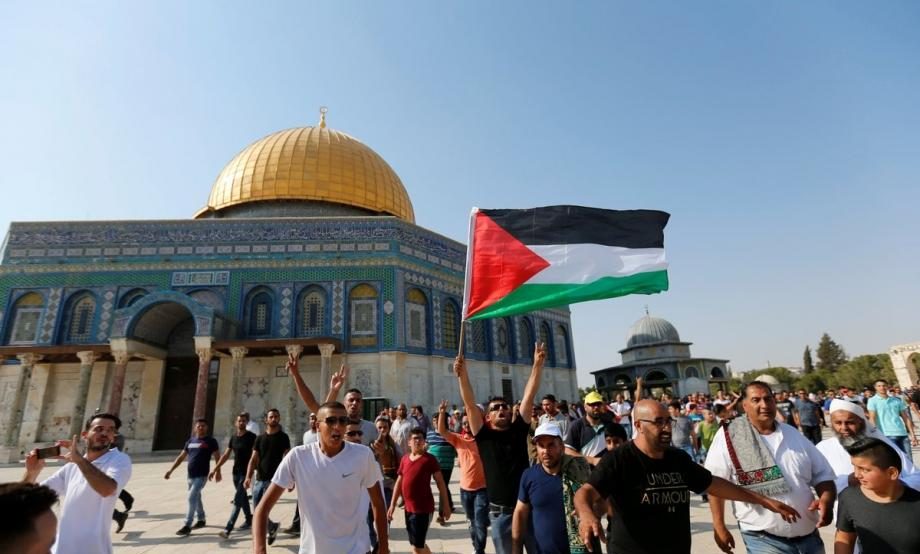For years, Palestinian content faced censorship from various platforms, including social media websites.
Qatar joined Arab nations in discussing a unified media plan on Monday to improve reporting on developments in Jerusalem amid ongoing Israeli attacks against Palestinians.
According to the Qatar News Agency (QNA), the meeting took place in Cairo with the Gulf state represented by the Qatar Media Corporation.
The meeting is part of a decision taken by the Council of Arab Information Ministers last month at the Arab League’s headquarters in Egypt.
The bloc’s member states had stressed the need to utilise the media to bolster the Palestinian cause, including in reporting on attacks in Jerusalem, Al-Aqsa Mosque, and Christian holy sites.
“The Council had called on the Arab media to highlight the efforts of Arab countries in supporting the Palestinian cause, with the aim of enlightening the young Palestinian generations in this regard,” reported QNA.
In January, the General Assembly of the Federation of Arab News Agencies (FANA) discussed a proposal regarding interference of global platforms in blocking all sorts of content, especially relating to the Palestinian cause.
The member states had discussed a memorandum that was then going to be sent to the Media Department of the Arab League.
Censorship of Palestinian content
For years, Palestinian content faced censorship from various platforms, including social media websites.
This was seen during the 11-day Israeli bombardment of the besieged Gaza strip in May last year. At the time, Palestinians on social media were heavily censored while attempting to expose Israel’s war crimes and forced displacements.
In October last year, internal Facebook documents shared with ABC News revealed that several employees at the social media giant were questioning restrictions on prominent Palestinian writer Mohammed El-Kurd’s Instagram account.
Titled “Concerns with added restrictions/demotions on content pertaining to Palestine”, the documents pointed to apparent censorship during the indiscriminate bombing of the Palestinian city.
Employees at Facebook were unable to identify the reason behind the limitation of El-Kurd’s online reach.
Another report released last year by the Arab Center for the Development of Social Media (7amleh), titled “The Attacks on Palestinian Digital Rights”, uncovered various digital rights violations from 6-to-19 May.
7amleh’s report documented more than 500 reports of Palestinian digital rights violations, of which 50% were related to Instagram, 35% about Facebook, and 11% were about Twitter.
“It is likely that the efforts of the Israeli Ministry of Justice’s Cyber Unit—which over the past years submitted tens of thousands of cases to companies without any legal basis—is also behind many of these reported violations,” said 7amleh in a statement on 21 May last year.
Last month, Meta-owned WhatsApp banned numerous Palestinian accounts from the platform.
WhatsApp’s co-founder had also donated $2 million to the United Democracy Project (Political Action Committee) that promotes candidates “that support the United States’ partnership with Israel“.
Meanwhile, Israel continues to carry out flagrant violations against Palestinian journalists reporting on the ongoing occupation of Palestine.
This was further highlighted in May this year when occupation forces shot and killed prominent Palestinian-American journalist Shireen Abu Akleh.
At the time of the killing, Abu Akleh was covering another raid by occupation forces in Jenin, dressed in her press vest and helmet, clearly identifying as a member of the press.
Israel also attacked Abu Akleh’s funeral, the biggest Palestine has ever witnessed.
Qatar strongly condemned the attacks, saying they reflect “the brutality of the Israeli apartheid regime and its disregard to all human values.”
According to the Palestinian Journalist syndicate, Israel killed more than 46 Palestinian journalists between 2000 and 2020.
In April this year, there were 57 Israeli violations recorded against the media.







